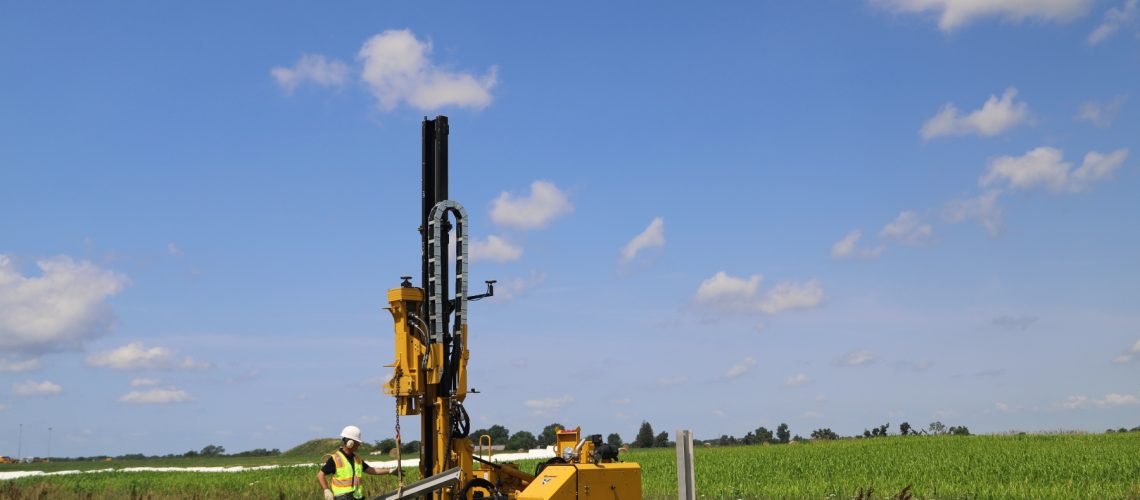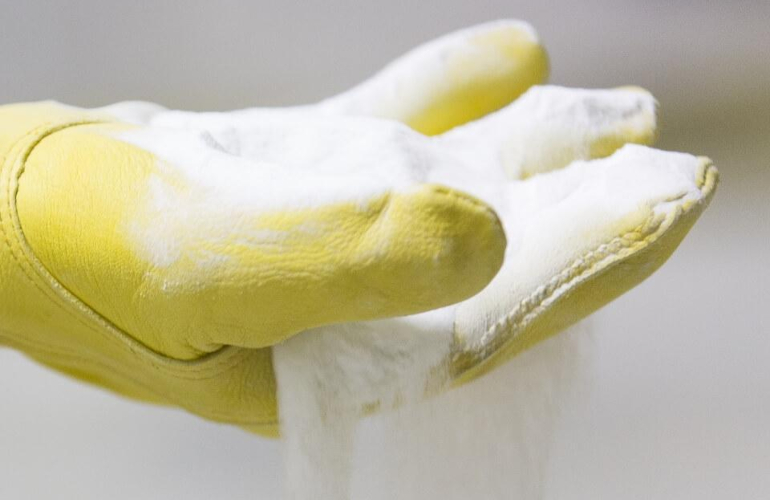Construction equipment manufacturer Vermeer has been building pile drivers for about 12 years, says lead product manager Ed Savage. However, recent developments in the solar industry have led to the technology becoming more popular in large-scale installations.
“The solar industry has grown fast the last couple years,” Savage says. “They’re starting to see the same labor struggles that a lot of other industries face in their ability to find, train and retain
employees.”
GPS has been a mainstay on heavy construction equipment for years. Vermeer took that technology and introduced the optional point-to-point (PTP) system for Vermeer PD10R pile drivers in early 2022. The new onboard technology helps make the time-consuming and labor-intensive application of driving piles more automated, allowing the machines to reposition themselves through GPS.
After one pile is driven, the operator presses a button on the remote control, and the pile driver travels to the next coordinate and aligns to go to the next pile. This technology helps minimize the number of steps required from the operator during the pile driving process on solar construction projects.
“Our approach to automation as a whole has been to take it in steps,” Savage says. “Look at cars. No one offered a fully automated car to start. They offered small bits of automation. We’re taking the same approach.”
The PTP system uses GPS waypoints to guide the pile drivers from one area to the next.
“We’ve removed a lot of steps, so the operator doesn’t have to touch a lot of buttons,” Savage says. “It’s not just about the drive of the pile, but also the placement. Even if we’re just saving a few seconds per pile, if you multiply that over the course of a day, or even over a year, those small increments really add up.”
Savage adds that the simplicity of the system also shortens the time to train crewmembers on the equipment, helping alleviate those workforce concerns.
“One of the unique things about the solar industry, it’s nothing for a pile driver crew to install over 100 per day,” Savage says. “That really adds up over a month’s time. Automation also helps battle complacency. It’s human nature not to be as productive during certain times of the day, but as you automate some of those functions, you’ll realize more consistency.”
Savage expects crews to be able to install 150 to 200 piles per day with Vermeer’s PTP system, depending the jobsite particulars. Savage doesn’t see automation as replacing human personnel.
“In the current day, with how machines work and the automation available in the industry, we still have that need for a person there operating,” Savage says. “We continue to see the value of experienced personnel. Technology is changing quickly, but as a manufacturer we’re just trying to make things easier for someone to walk up and learn a piece of equipment.”
Tags: automation, ground mount, pile driving, solar robotics, utility-scale, Vermeer






